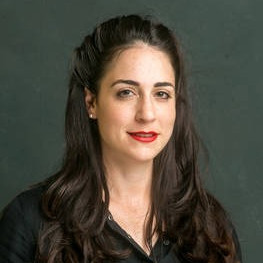Chaya Laya
Biography Narrative
Parliamentary and Diplomatic Liaison, South African Jewish Board of Deputies
Chaya Singer is the Parliamentary and Diplomatic Liaison for the South African Jewish Board of Deputies (SAJBD), the elected representative spokesbody and civil rights organisation of the South African Jewish community. Chaya has worked for many years in the interfaith dialogue field, first as a Jewish student leader elected chairperson of the World Union of Jewish Students (WUJS) and chairperson of the South African Union of Jewish Students (SAUJS), and now as a communal professional.
Chaya holds a Bachelor of Music (BMus) degree from the University of the Witwatersrand, as well as an extensive list of qualifications in Jewish education. Chaya regularly represents the SAJBD at civil-society and government forums, particularly regarding anti-racism, human rights, and social cohesion initiatives, where it is important that the Jewish community is vocal in its efforts to work towards a more tolerant society. Chaya is also a social cohesion advocate of the South African Department of Arts and Culture.
Chaya believes that prejudice can only thrive when there is no communication between people of different backgrounds and beliefs. It is through engaging in honest, respectful discussion that members of different faiths, as well as those of different cultures and political orientation, can overcome such negativity and connect on a human level. In the present era, and in view of the worldwide rise of religious fundamentalism and intolerance, we are seeing an ever-greater need for interreligious dialogue.
Interreligious Activities and Initiatives
African Legislators Network on Interfaith Dialogue (ALNID)

